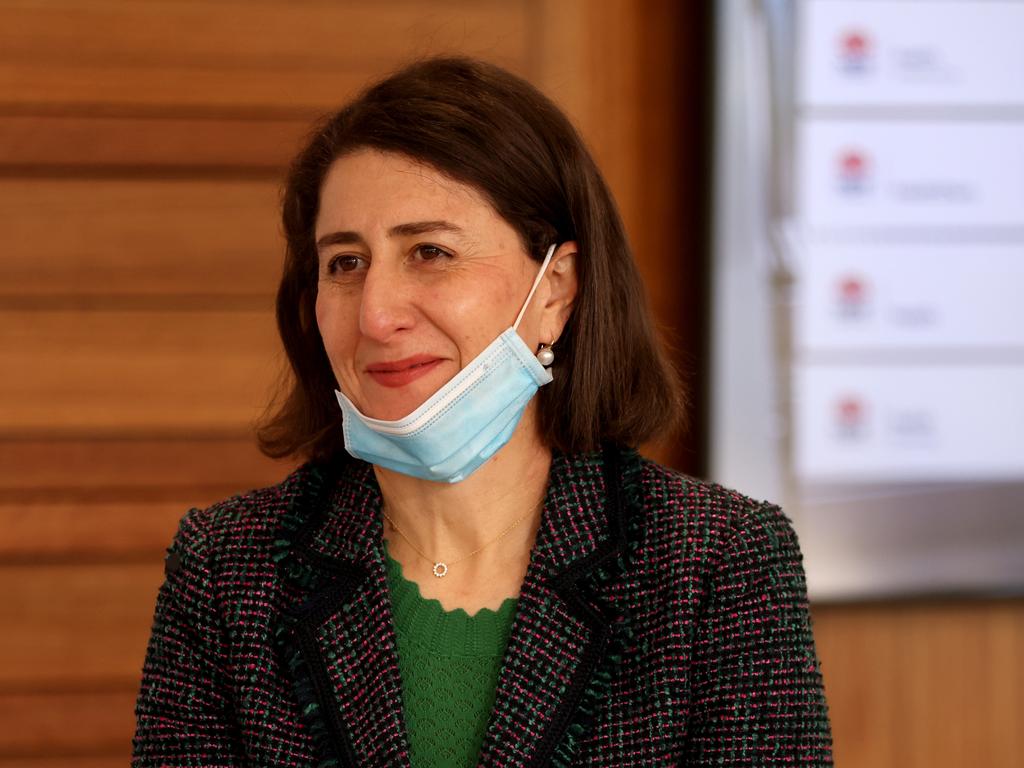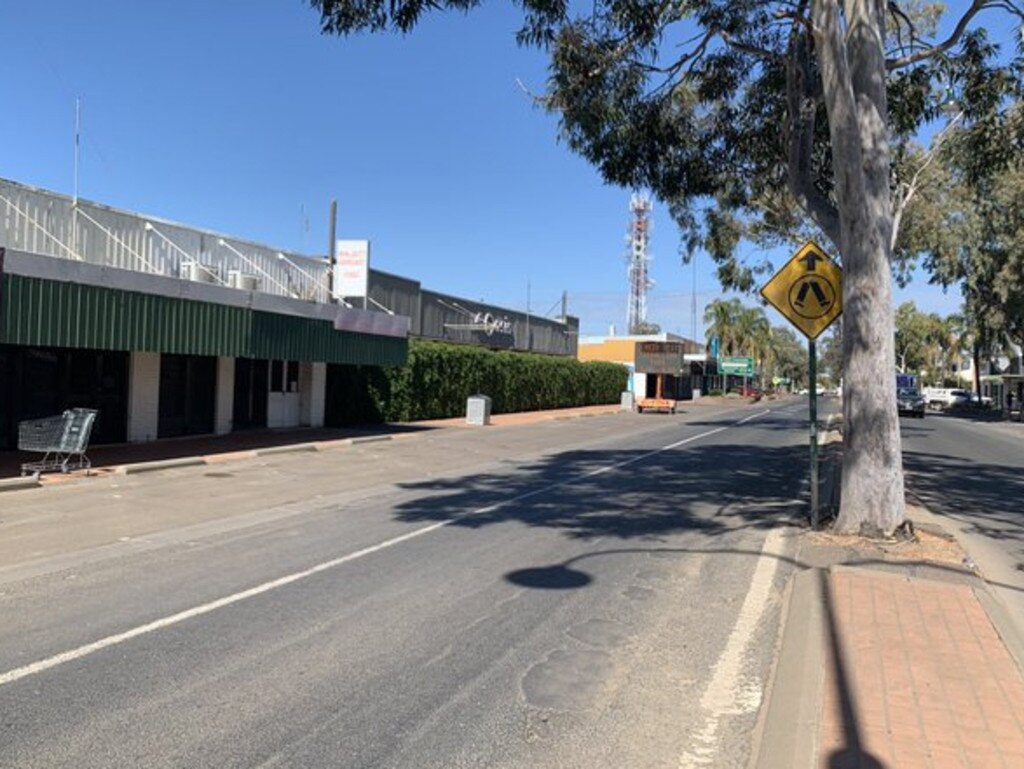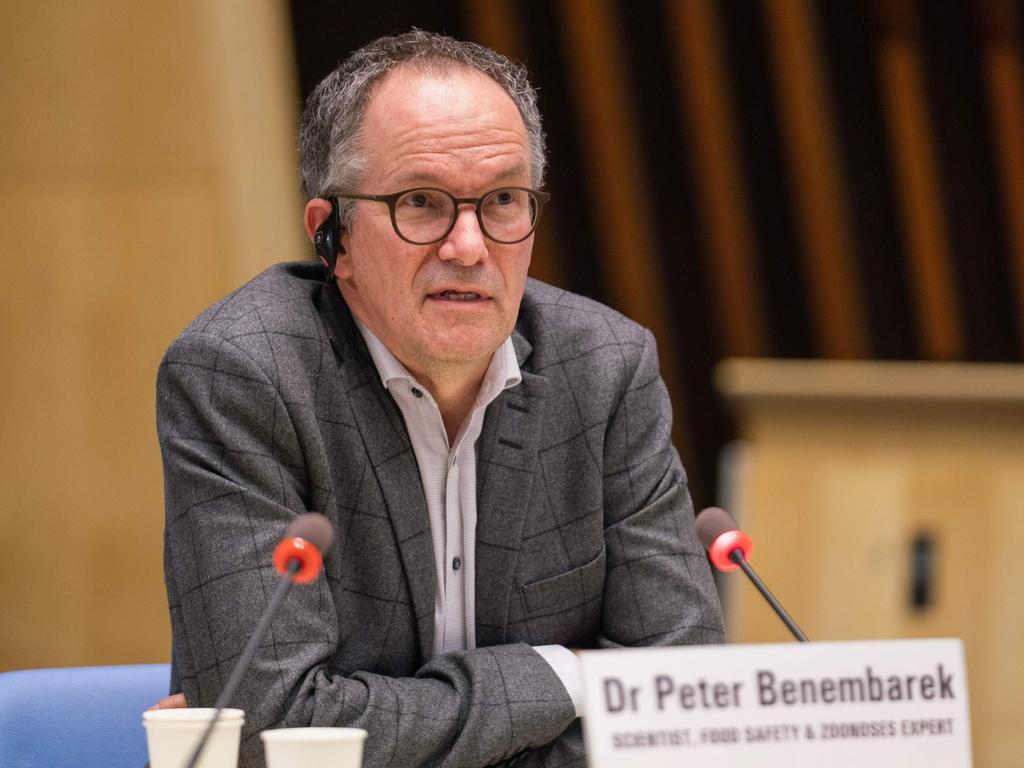Race to vaccinate on Covid’s new Indigenous frontline
New frontline emerges in the Covid battle, with Aboriginal health services racing to vaccinate amid a deadly combination.

The NSW northwest is emerging as a new frontline in the nation’s battle against Covid-19, with Aboriginal health services racing to vaccinate vulnerable indigenous communities against the virus.
It could hardly be a more daunting prospect for health officials in Walgett, with the town’s Aboriginal community considered one of the most at-risk in the country. Just 8 per cent of Indigenous Australian in the region over the age of 16 are fully vaccinated – compared to the national average of 25 per cent – despite having extremely high instances of comorbidities. It is a deadly combination that threatens to see the virus spread quickly through the community to potentially devastating and lethal effect.
In little more than a day since officials were alerted to a potential outbreak in Walgett and the regional centre of Dubbo, 25 people have been confirmed as having been infected.
Up to 10 of those people are believed to be Indigenous. As NSW Health set up an emergency vaccination clinic in the Walgett RSL on Friday, contract tracers privately admitted they were facing an impossible task to contain the outbreak.
Anne Dennis is at the centre of the crisis, one she knows could devastate the people and places closest to her heart.
A respected member of the Walgett community and the chairwoman of Australia’s biggest land council – the NSW Aboriginal Land Council – she is urging the region to abide by restrictions, get vaccinated and get tested. She knows the disease already threatens outlying towns where overcrowded households could speed up the spread, from Baradine to Wee Waa.
“I’m asking our community members to stay home right now, and only with the family that you live with,” said Ms Dennis, whose 81-year-old father Richard Kennedy was among those to be vaccinated in Walgett on Friday.
“We can’t be visiting each other at the moment. I know this is a very confusing and scary time for everyone. But if we stay at home, wear face masks when we’re out, and limit our movements right now, we limit the chance that we’ll be exposed to Covid-19. It would be devastating if Covid-19 gains a foothold here, as there are many extremely vulnerable elders we need to look after, and people with underlying health conditions.”
Walgett’s new walk-up vaccination clinic will be open all weekend for people from across the shire, including Collarenebri and Lightning Ridge.
The Weekend Australian has learned health authorities are still struggling to identify close contacts of the first known Covid-19 carrier in the region.
The 27-year-old who tested positive was already infectious when he was arrested in Dubbo last Saturday and transported to Bathurst Correctional Centre, almost 200km to the south, where he spent the weekend behind bars.

While he underwent a Covid test as part of the routine screening process for all new inmates, he had already returned to his hometown and had been active in the community for two days by the time he was told on Wednesday that he had tested positive.
It is understood the man has been unco-operative during interviews with health officials about who he met during that time, and authorities remained largely unaware of his movements in Walgett outside an 11-minute window in which he was known to have visited the town’s sports club. It is also believed he briefly stopped off in Dubbo while being driven home to Walgett in a private car on Monday.
Walgett’s limited medical resources mean anyone requiring intensive care will need to be transferred to Dubbo Base Hospital, about 275km away, even as the regional centre struggles with its own rash of Covid cases. Of the new cases identified, 17 were in Dubbo and two in Walgett.
The Western NSW Local Health District has suspended all non-urgent elective surgery at the Dubbo Base Hospital from Monday in anticipation the intensive care unit will be used to treat infected patients.
Despite the hard work of Aboriginal community-controlled health organisations across Australia, the gap between the vaccination rate of Indigenous and non-Indigenous people has been growing.
Nationally, only 14 per cent – or about 75,000 Aboriginal and Torres Strait Islander people – are fully vaccinated. About 28 per cent of the Indigenous population – or about 155,000 people – have had at least one dose.
The reasons include staff shortages at health clinics, vaccine hesitancy and supply challenges.
Remote and regional clinics were vaccinating all Indigenous people over 18 with AstraZeneca when new advice in April recommended Pfizer for anyone under 50. This created a dilemma in regional Australia since most clinics stocked only Astra Zeneca. Indigenous health organisations overcame this with federal help, but it took until late June.
Since late June, Aboriginal health organisations have been building on the number of vaccinations they do each week. Last week was a record 12,000.
However, Jason Agostino, a GP and medical adviser to the National Aboriginal Community Controlled Health Organisation, said that number needed to double as a matter of urgency.
“Our health services can’t do it on their own,” Dr Agostino said. “They need help from the states and organisations like the Royal Flying Doctor Service.”
He said Indigenous health workers continued to encounter Aboriginal and Torres Strait Islander people who believed they were unable to contract Covid-19, amid fears anti-vaxxers have deliberately targeted remote communities with misinformation.
“We are really proud of getting to this point with zero deaths of Aboriginal and Torres Strait Islander people from Covid-19 but there is this myth that persists that they cannot get it,” he said. “In fact more than 60 Aboriginal and Torres Strait Islander people were infected in the Sydney outbreak, with some in hospital and a number still in ICU.”
Dr Agostino said many Indigenous people were not anti-vaccinations – they and their children had been vaccinated against other diseases at Aboriginal health clinics, by health workers they know and trust – but they had questions about the Covid-19 vaccines. “We find that once most people talk to someone they trust and they get their questions answered honestly, they want the Covid-19 vaccine,” he said.
In NSW’s far west, the NSW Aboriginal Land Council, Aboriginal Affairs and Foodbank are also working with Local Aboriginal Land Councils and other community organisations, to distribute food hampers to elders and vulnerable community members currently locked down.
Shooters, Fishers and Farmers MP Roy Butler, who represents the area, said the Walgett community had responded well to the snap vaccination rollout.
“There have been some reports of people who are not from the Walgett township who have already come in to be vaccinated, which might just be a bit of confusion, because it was meant to be Walgett residents (on Friday) before opening up to the wider local government area on the week,” he said.
“But that shows how enthusiastic the community has been about getting vaccinated. By all the reports I’ve received, the clinics are running smoothly, the staff have been fabulous.”







To join the conversation, please log in. Don't have an account? Register
Join the conversation, you are commenting as Logout